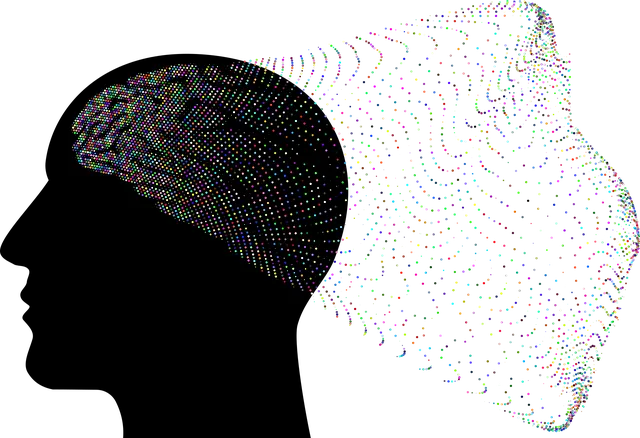Kaiser Permanente mental health Longmont has adopted Recovery-Focused Methodology (RFM), shifting from symptom management to empowering individuals with mental illness through resilience and personal strengths. This approach, including risk assessments, mindfulness exercises, and public awareness campaigns, reduces stigma and promotes inclusivity. Resilience-building strategies enhance patient care, improve outcomes, and strengthen relationships. Regularly measured initiatives demonstrate RFM's effectiveness in stress management, crisis intervention, and improving community mental health outcomes.
“Discover how Kaiser Permanente Longmont is transforming mental health support through RFM (Resilience, Flexibility, and Mastery) exercises. This innovative approach aims to build resilience in patients, enhancing their ability to cope with stress and adversity. The article explores the profound impact of RFM on mental well-being, delving into its implementation strategies, best practices, and measured success within the Kaiser Permanente Longmont community. Learn how these exercises are revolutionizing patient care.”
- Understanding RFM and Its Impact on Mental Health Support at Kaiser Permanente Longmont
- The Role of Resilience-Building Exercises in Enhancing Patient Care
- Implementing RFM: Strategies and Best Practices for Success
- Measuring the Effectiveness of RFM Initiatives at Kaiser Permanente Longmont
Understanding RFM and Its Impact on Mental Health Support at Kaiser Permanente Longmont

At Kaiser Permanente Longmont, understanding RFM (Recovery-Focused Methodology) has been instrumental in enhancing mental health support. This approach emphasizes personal strengths and resilience, shifting the focus from merely managing symptoms to fostering a robust recovery environment. By integrating RFM into their services, Kaiser Permanente Longmont aims to empower individuals with mental illness, encouraging them to take an active role in their healing journey. The methodology challenges traditional views of mental health, reducing the stigma associated with it and promoting a more inclusive and supportive community.
This shift in perspective has profound implications for mental health professionals at Kaiser Permanente Longmont. It requires them to conduct thorough risk assessments not just for patients’ safety but also to identify strengths that can be leveraged for recovery. Furthermore, the organization actively engages in public awareness campaigns development and Mental Illness Stigma Reduction Efforts, ensuring a holistic approach to mental health care. This comprehensive strategy not only benefits individuals seeking support but also contributes to creating a more resilient community where mental well-being is prioritized and nurtured.
The Role of Resilience-Building Exercises in Enhancing Patient Care

Resilience-building exercises play a pivotal role in enhancing patient care, particularly within healthcare organizations like Kaiser Permanente mental health Longmont. These exercises are designed to equip individuals with the skills needed to navigate life’s challenges and setbacks, fostering emotional resilience. By incorporating practices such as mindfulness, stress management techniques, and effective communication strategies, patients become better equipped to manage their mental health proactively.
This proactive approach not only improves patient outcomes but also strengthens the patient-caregiver relationship. Effective resilience-building can lead to better adherence to treatment plans, increased coping mechanisms, and a heightened sense of self-efficacy. Consequently, healthcare providers at Kaiser Permanente Longmont can facilitate more holistic care, addressing not just the symptoms but also the underlying emotional needs of their patients.
Implementing RFM: Strategies and Best Practices for Success

Implementing RFM (Resilience, Flexibility, and Mental Agility) strategies is a game-changer for mental health professionals, especially in demanding settings like Kaiser Permanente Longmont. These exercises not only enhance self-care routine development but also foster a robust Risk Management Planning for Mental Health Professionals. By integrating resilience-building into daily practices, professionals can navigate the hustle and bustle of their roles with greater adaptability.
To ensure success, it’s crucial to tailor RFM initiatives to individual needs and organizational contexts. Best practices include regular group discussions that encourage sharing experiences and coping mechanisms, fostering a supportive community. Additionally, dedicated time for self-reflection and stress management techniques, such as mindfulness exercises, can significantly contribute to resilience. Encouraging open conversations about mental health challenges and successes creates an environment where professionals feel empowered to prioritize their well-being, ultimately benefiting their ability to serve others.
Measuring the Effectiveness of RFM Initiatives at Kaiser Permanente Longmont

At Kaiser Permanente Longmont, the success of RFM (Resilience, Flexibility, and Mindfulness) initiatives has been meticulously measured to evaluate their impact on the mental health and emotional well-being of patients. Through regular assessments and feedback from participants, the program’s effectiveness in promoting resilience has become apparent. The exercises focus on teaching practical skills to manage stress and cultivate a sense of calm, which are essential components of emotional well-being promotion techniques.
These interventions aim to reduce symptoms of anxiety and depression, offering valuable Stress Reduction Methods. Additionally, the RFM program provides Crisis Intervention Guidance, empowering individuals to navigate challenging situations with increased resilience. The positive outcomes observed at Kaiser Permanente Longmont highlight the potential for these exercises to be integrated into broader healthcare strategies, contributing to improved mental health outcomes in the community.
The implementation of RFM (Resilience, Flexibility, and Mastery) exercises within Kaiser Permanente Longmont’s mental health support systems has proven to be a game-changer. By fostering resilience and enhancing coping mechanisms, these strategies have empowered patients to navigate life’s challenges more effectively. The success of this initiative highlights the potential of integrating RFM into healthcare, particularly in the context of Kaiser Permanente’s commitment to holistic well-being for its Longmont community. Through measured effectiveness assessments, the program’s positive impact on patient care and overall mental health outcomes is evident, offering a promising model for future healthcare resilience programs.






